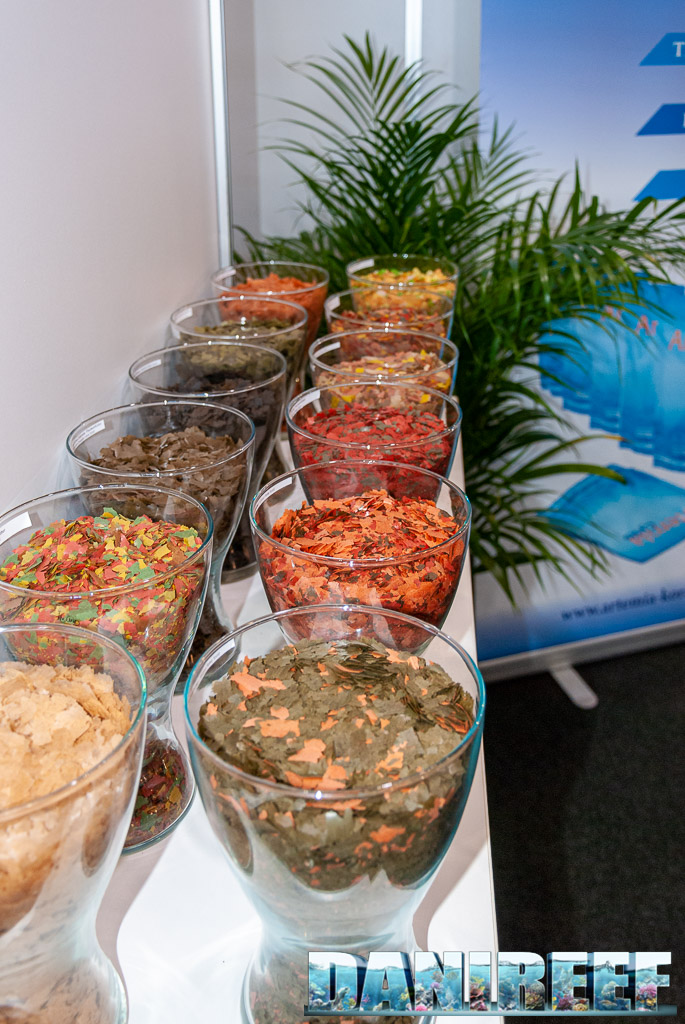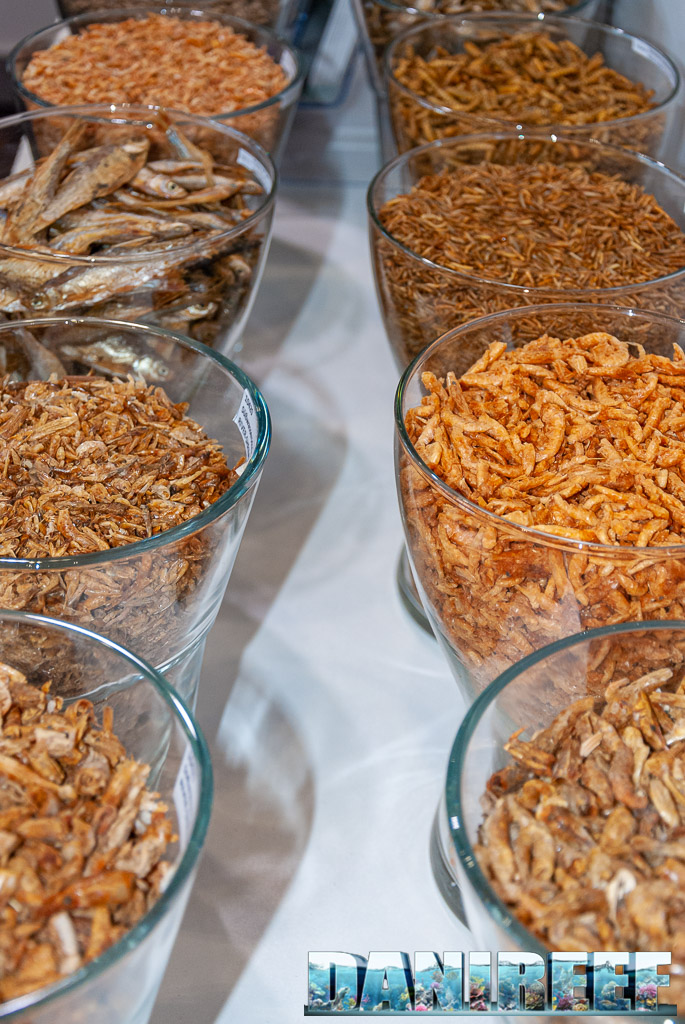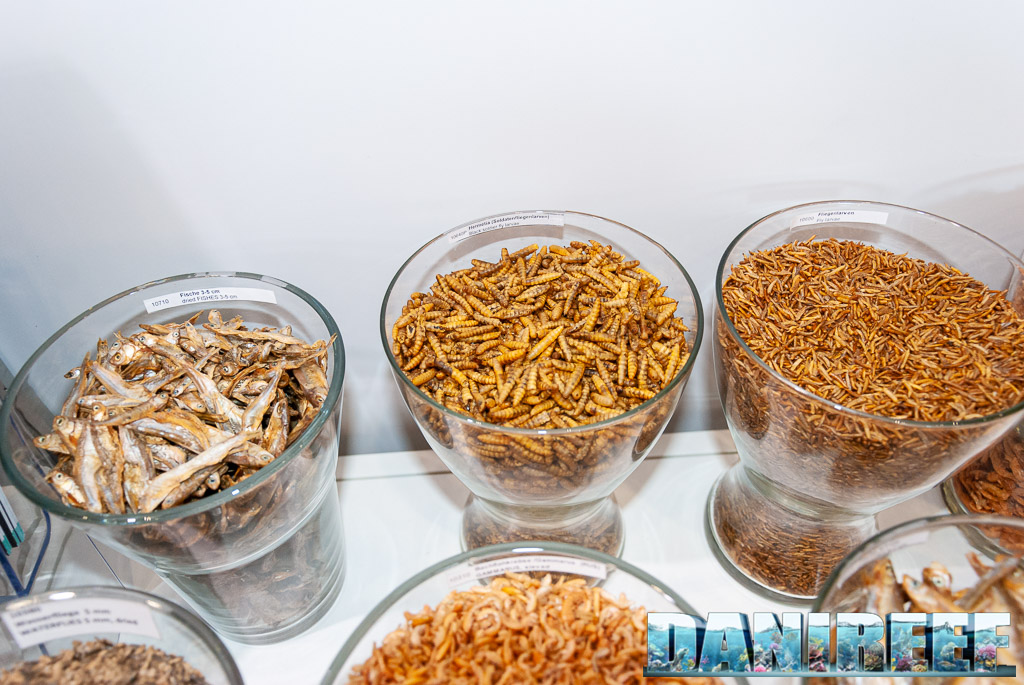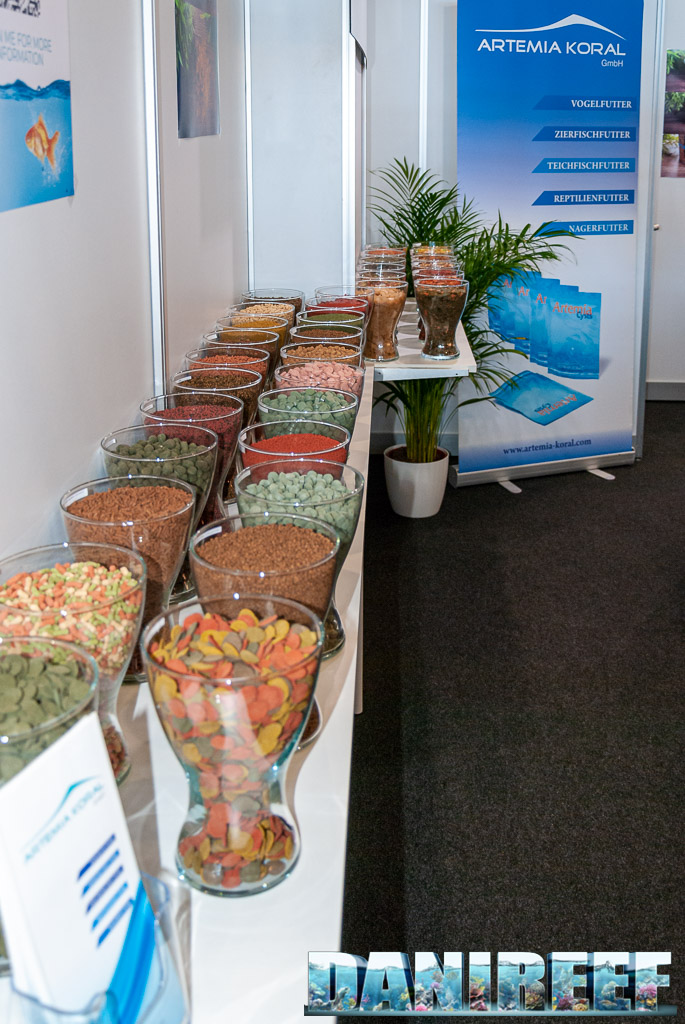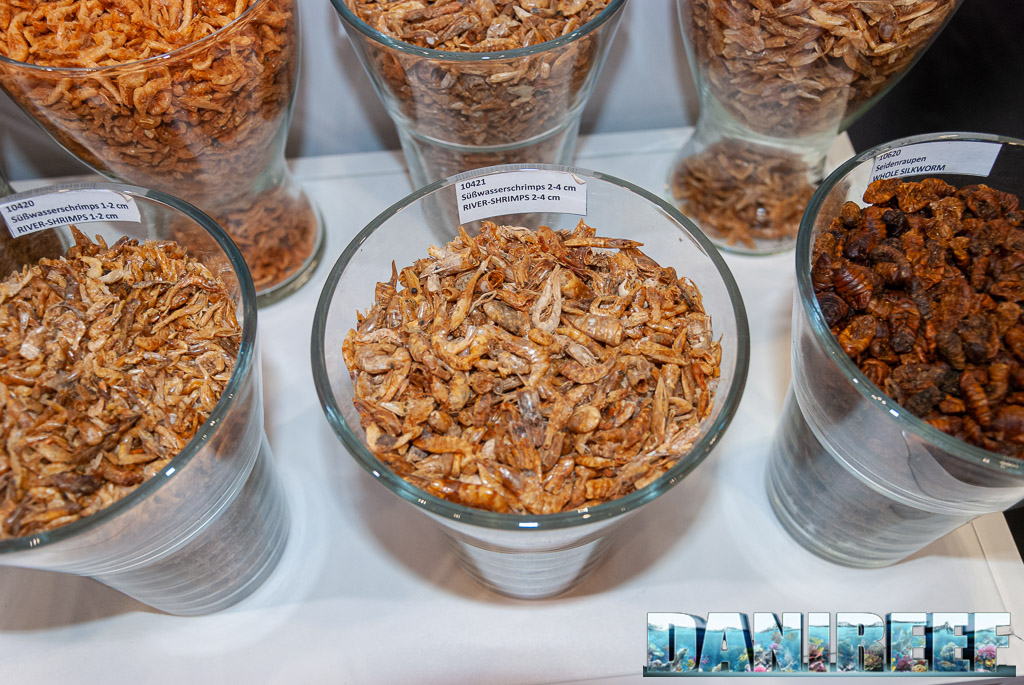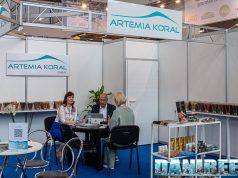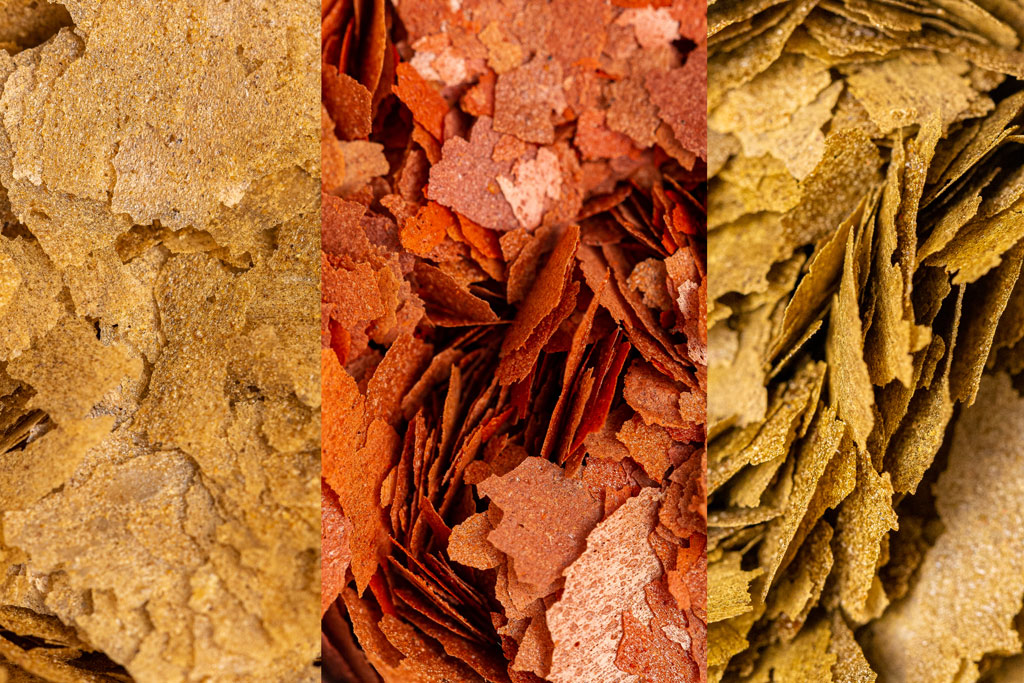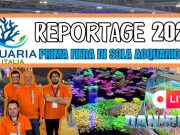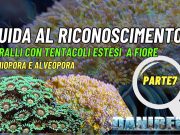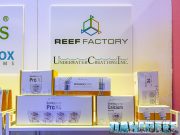
We met Artemia Koral’s managers in the middle of Hall 4A at Interzoo 2022.
This article is also available in: italiano
Since Artemia Koral GmbH is based exactly in Nuremberg, they surely were playing at home.
We had the pleasure to have a better understanding of their work at the exhibition, and to take a look at some of their products.
Natural feeding
Founded in 1999, this company began importing animal nutrition products in 2005, and later distributed them to producers and retailers from all over the world, expanding their own core business up until its trasformation in Artemia Koral GmbH.
As already mentioned its main field is the animal nutrition, and its targets are numerous.
Starting from ornamental fish and lake fish, as well as other animals such as reptiles, rodents and birds, Artemia Koral‘s products cover a very large share of the market. To come full circle, they also sell artemia-based products, which are used as supplements, and to breed the artemia itself. To have a more detailed insight, we can sort the products in larger sections, according to the type of food and the format used for its storage.

Canned food
This type of packaging allows the foods to preserve their qualities, making them really close (speaking of properties) to live food. Many of these are specific for the feeding of exotic animals, reptiles and small mammals, but in some cases they can be used with decent results for fish. Among them we can find:
- Brine shrimps – Saline artemia in a particular natural brine that enhances its nutritional properties;
- Cyclops – A particular freshwater copepod that can be given to marine fish too;
- Bloodworms – Also known as mosquito larvae, we normally refer to it as Chironomus Red, used in the nutrition of fresh and sea water;
- Grassopphers – Canned grasshoppers made for lake fish and other animals such as sugargliders, hedgehogs, possums, skunks, big lizards, freshwater turtles and tortoises;
- Mealworms – Used for the nutrition of lizards, geckos, small turtles, fish and some wild birds;
- Silkworms – Food for possums, pigmy marsupials, hedgehogs, skunks, amphibians, wild birds, medium and big-sized fish, mammals and reptiles;
- Crickets – Food for geckos, lizards, turtles, fish, birds and small animals;
- Antarctic Krill – A small crustacean of the Euphausiidae family, fundamental for the marine food chain;
- Mysis – A shrimp of tiny dimensions, good for fish and some LPS corals.

Flakes, pellets and wafers
Under this category there is an incredible amount of products, which makes it difficult for us to list them all. To sum up we will simply say that in each of the three groups, which are flakes, pellets and wafers, we will find our product according to the type of animal we need to feed. Some are specific for some types of fish, for example the Gold Flake, made for Carassius auratus and other ornamental Carassius.
Speaking of flakes, we have to mention the Cichlid feeding, that, as the name implies, is designed to give the best nutritional supply to cichlids; the Tropica suits all marine fish; the Diskus has a large amount of vitamins, amino acids and minerals and is recommended for Symphysodon discus; last but not least the Koi feeding, for those who love this beautiful carp.
Worth mentioning is also the wafer-shaped Artemia food, in both normal and black versions, the Tubifex, Spirulina and Spirulina-Chlorella mixed wafers.

Among the pellets we can see some products for turtles and reptiles, like the Turtle and the Reptimmum, a giant floating food containing easy-to-digest proteins and spirulina.
Cichlid Granules and Cichlid Stick are floating pellets for cichlids, respectively small-medium sized and medium-large sized. There are also pellets for other species like Koi carp, Carassius auratus and ornamental goldfish, Discus, Neon and tetra species. Other special formats for large fish are tablets, sinking groundfish food or floating food, such as the Gammarus Stick for turtles.

Frozen food
Artemia Koral sells four types of frozen food, all in 1Kg formats.
- Bloodworm (Chironomus red) frozen in fresh water;
- Bloodworm (Chironomus red) frozen in sea water;
- Frozen saline Artemia;
- Frozen Gammarus.
All of these products are frozen while still fresh, therefore they contain vitamins and carotenoids in greater quantities than other formats. The food, in fact, mantains almost intact its properties, as a consequence of an adequate preservation in the cold chain, from producer to consumer.

Dried food
In this field Artemia Koral managed to impress us with an amazing variety of products at the exhibition. On a large display, in glass containers, many of the dried foods were arranged, they represent an important part of this company’s business. Obviously not all the Artemia Koral’s options are suitable for the direct nutrition of animals. Instead, some of them are sold to companies working in the Pet industry, to produce flours and mixtures that will be part of other supplements and feedings.
The most requested foods are: Gammarus and Gammarus Legs, used as a standalone food or as supplements in the production of food for birds, turtles and fish;
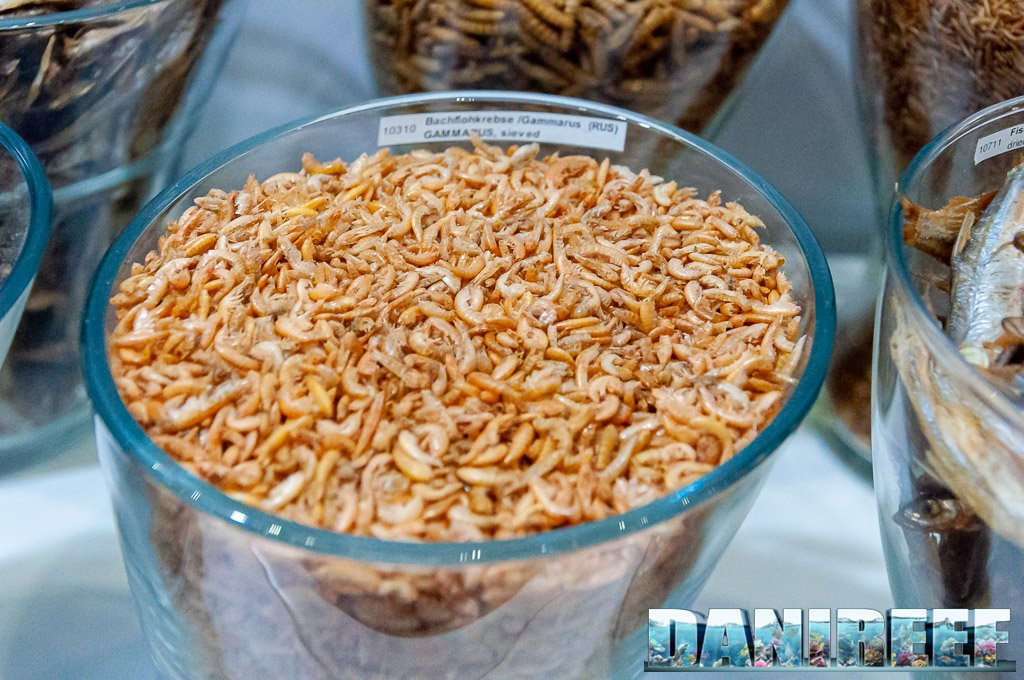
Water flies, a natural feeding packed with proteins for all predator fish, reptiles, wild birds and invertebrates;
Freshwater shrimps of different dimensions (1-2cm, 2-3cm or 3-5cm). It is a food full of fibers that tend to float in water and is recommended for water turtles and lake fish like koi, goldfish, cichlids and sheat-fish;
Crickets and Grasshoppers for medium and big reptiles, and ornamental fish like cichlids and arowana. This type of food contains lots of nutrients and helps to improve ornamental fish’s immunity and coloring.

Lastly Krill, Daphnie, red mosquito larvae, housefly larvae, black soldier fly larvae, Mysis, Tubifex, mealworms… even naturally dried fish of various dimensions… there’s plenty.

Products of saline artemia
Artemia Koral showed us some interesting products in this field too. Sold in bags, we have Artemia Cysts, to be used in our personal breeding. We remind you that, even though saline artemia is not the richest food out there, its usage in the aquarium nutrition is massive. Lots of foods are produced with this small crustacean, that we can find frozen, freeze-dried, or ready-to-hatch in our own farm. The benefits of breeding at home include the freshness of the product, and the use of the artemia larvae, that in their early stage are called “naupli”.
Why is the artemia larvae good? Up to 48 hours from the hatching they still have the yolk sac, full of proteins and fat acids, therefore they’re used with great results in the breeding of the fry and small-polyp SPS corals.
Artemia Koral offers different products, mainly coming from the purest salt lakes of Siberia. The significant difference between one and another is the percentage of cysts (or eggs) hatched.
The minimum is 80% for Artemia Cysts, then we have 90% of Artemia Cysts Profi, up to a maximum of 95% of hatched eggs of higher quality Artemia Cysts Premium.
Decapsuled artemia cysts can be used as food to be directly given to fry and small fish, crabs, shrimps and corals. In this case artemia eggs are deprived of the hard outer shell before being sold. This way an element which is difficult to digest can be removed, else it may be harmful to the animals’ digestive system.

REFERENCES
As usual here is the link of the official homepage of Artemia Koral GmbH. We also invite you to read our Editorial on the exhibition, you can access the links of all the articles released so far, that will increase day by day, or watch our videoreport for this Interzoo 2022.
Hereunder you can see the gallery with some pictures not included in the previous chapters.

